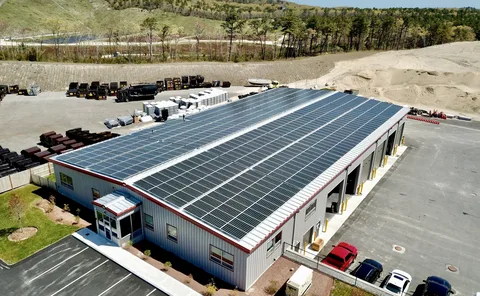As businesses increasingly look for sustainable ways to reduce energy costs and minimize their environmental impact, commercial solar systems have become a popular choice. However, the initial investment can be substantial. To support the transition to clean energy, many governments offer government incentives and tax credits for commercial solar systems. These financial benefits make solar power more accessible and affordable for businesses of all sizes.
What Are Government Incentives for Commercial Solar Systems?
Government incentives are financial benefits provided by federal, state, or local governments to encourage the adoption of renewable energy technologies, including solar power. These incentives come in various forms such as grants, rebates, and performance-based incentives. They help reduce the upfront costs of installing commercial solar systems, making the switch to solar energy more attractive for businesses.
Understanding Tax Credits for Commercial Solar Systems
Tax credits directly reduce the amount of tax a business owes. One of the most significant incentives available is the federal Investment Tax Credit (ITC), which allows businesses to deduct a substantial percentage of their solar system costs from their federal taxes. This credit can significantly lower the overall expense of installing commercial solar systems and accelerate the return on investment.
Benefits of Utilizing Government Incentives and Tax Credits
By taking advantage of government incentives and tax credits for commercial solar systems, businesses can:
- Lower installation costs: Immediate financial relief through rebates and tax deductions.
- Increase energy savings: Reduced reliance on grid electricity lowers ongoing operational expenses.
- Enhance sustainability: Align business operations with environmental goals and corporate social responsibility.
- Improve property value: Solar installations can increase the value of commercial properties.
How to Qualify for These Incentives and Tax Credits
Eligibility criteria vary depending on the type of incentive and the location of the business. Typically, commercial solar systems must meet specific standards, such as size, technology type, and installation by certified professionals. It’s important to research both federal and local programs or consult with solar providers who are knowledgeable about available incentives.
Conclusion
Government support through government incentives and tax credits for commercial solar systems plays a crucial role in encouraging businesses to invest in renewable energy. These financial programs reduce the initial cost burden, making solar energy a more feasible and attractive option. By leveraging these incentives, companies can not only save money but also contribute to a more sustainable future.


